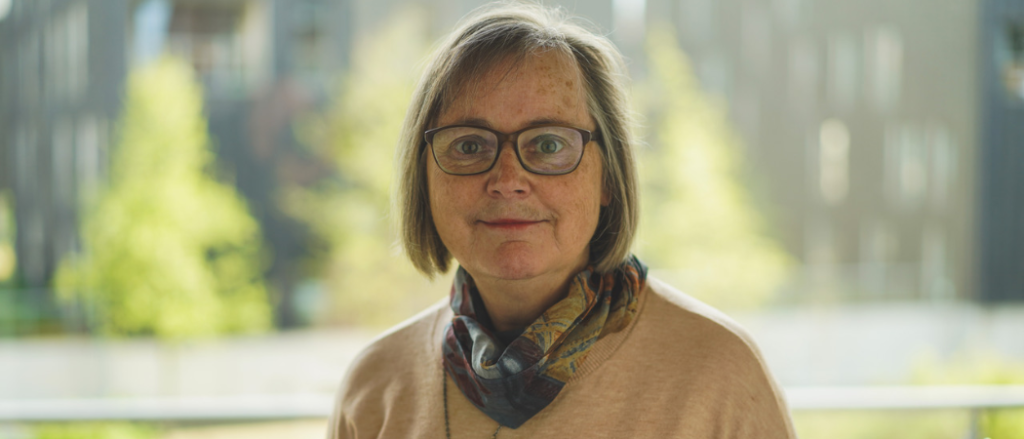23 Apr 2024 |
EU research is a bed-rock to ‘Project EU’, forging countless relationships and friendships across Europe. This must be retained in FP10
Monica Schofield is a R&D consultant and head of a funding advice unit at Tutech, a TTO serving Hamburg University of Technology. She is also convenor of a task force on responsible innovation for the European Industrial Research Management Association of which she is an individual member.
It didn’t take long after the launch of ChatGPT, before I was asked if we could use it for Horizon Europe proposals. And of course, it is inevitable that the idea of using artificial intelligence as tool to select proposals has been put on the table. But this presents a Kafkaesque scenario for the future allocation of research funding: funding for research being proposed by AI for AI.
This is of course absurd, but as everyone who has ever applied to the Framework programme, knows, the transaction costs involved in applying for funding, and the effort taken in selecting proposals for funding makes ‘automation’ a tempting option.
The credibility of the Framework programme brand lies in the selection process. Whether Europe gets value for money from the billions spent crucially depends on the ‘buy in’ of individuals. Without the willingness of Europe’s top intellectual capital to invest an inordinate amount time and effort in preparing proposals, and an army of volunteer experts prepared to commit time to judge these, no one can substantiate the claim that funding goes to projects of ‘excellent scientific and technical quality’.
When done properly, selecting proposals is time-consuming work (never mind the time spent writing them). If the programme gets bigger, more evaluators will be needed. Yet as research funders and journals are observing, the pool of people with the necessary expertise is limited and there is competition for their attention.
For those who are part of the research community, the time devoted to evaluating proposals may be regarded as part of the vocation of being a researcher. For those of us not in academia, committing time to this requires the consent of a public-spirited employer, or plenty of spare time.
Given that the financial reward is not that great, the work needs to be interesting and carry some measure of esteem to be attractive. My first evaluation in 1993 was an exhilarating introduction to Europe because of the calibre of people you rubbed shoulders with – senior academics, top R&D managers, engaged and informed civil servants. One felt honoured to be asked.
Today, with online meetings, less time and the proposition of having to read much text that is mostly about ticking policy boxes and wade through spread sheets doing the work of an accountant, the job somehow just isn’t quite as appealing.
Of course, for there to be a Framework programme with enough money to meet the insatiable demand for funding, politicians have to be persuaded of its value. This means it has to appeal to a vast array of political interests. But whatever is sold to politicians will only be achieved through the personal commitment of individuals, the ‘user community’ of the research programme.
Bed rock of Project EU
Europe needs the continuation of the Framework programme not just for procurement of research for policy implementation, or technology advances, or indeed for innovation, but also for what it does in its entirety to provide a bed-rock to ‘Project EU’. Countless relationships and friendships between individuals, across borders, disciplines and organisations have been forged through its existence.
Resilience and our ability to respond to whatever crisis befalls us is founded in having people in many fields with deep knowledge, who know, trust and respect each other and who have the means to work together. The ‘framework’ of instruments and their familiarity across Europe and beyond allows international collaboration to be set up fast when needed. It performs a vital role in providing a connecting point for people in Europe.
There is undoubtedly a need for large-scale institutional cross-organisational collaboration and a commitment to agreed technology roadmaps in many strategic areas. Industry needs this.
However, so much current Horizon Europe funding attempts to combine a vast array of organisations within the confines of small budgets to achieve a shopping list of impacts beyond the realms of what R&I projects can achieve. This often results in highly contrived proposals of such complexity that they are inefficient to manage and difficult to evaluate.
Therefore, as we discuss the shape of things to come, let us not simply shout out about how much money goes to supporting basic research, or innovation, or cohesion, but look at the funding instruments themselves. We need opportunities for proposals that are manageable to prepare, inspiring to judge and that lead to projects that manifest the value of European collaboration. And we need people qualified to judge them.
The success of Framework Programmes present and future depends on human intelligence, not AI.
Monica Schofield is a R&D consultant and head of a funding advice unit at Tutech, a TTO serving Hamburg University of Technology. She is also convenor of a task force on responsible innovation for the European Industrial Research Management Association of which she is an individual member.
